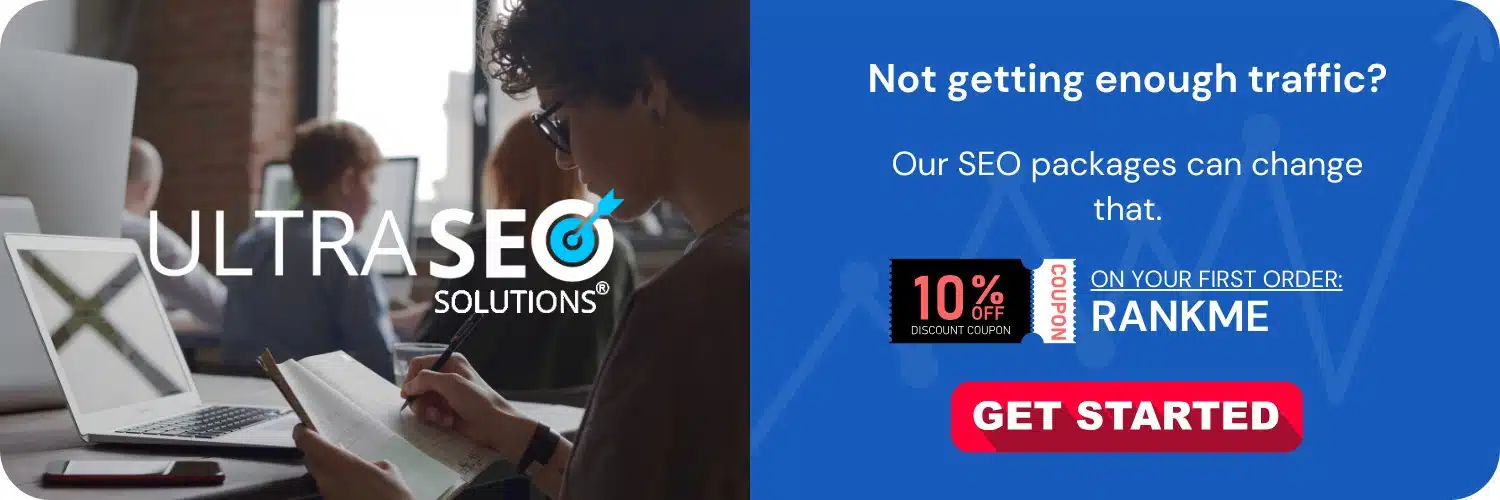
Understanding how SEO improves revenue begins with recognizing that successful SEO strategies drive quality traffic to a website, which then increases the likelihood of conversions. The core idea is that by optimizing your site to appear for relevant queries that potential customers are searching for, you improve the chances of these users engaging with your site and taking profitable actions, such as making a purchase, signing up for a service, or filling in a contact form.
The Relationship Between SEO and Revenue Growth
SEO does more than improve search engine rankings; it lays the foundation for a robust online presence, ultimately leading to revenue growth. Here’s how:
Increased Visibility in Search Results
By optimizing your site’s content, structure, and on-page elements, your website becomes more attractive to search engines. This increased visibility means more potential customers can find your products or services when they input relevant search queries. A higher ranking in search results is synonymous with a higher likelihood of clicks, and consequently, more traffic.
Better User Experience
SEO is not just about pleasing search engines—it’s about providing an exceptional user experience. When your website offers valuable, easily accessible content and a seamless navigation structure, visitors are more likely to stay longer and engage with your site. User experience is a silent salesman, improving the chances that a visit converts to a sale.
Quality Traffic and Targeted Leads
Effective SEO targets users who are actively searching for what you have to offer. By focusing on high-intent keywords and creating focused content around these terms, you can attract visitors who are further down the sales funnel, leading to more qualified leads and better conversion rates.
Implementing SEO Tactics to Drive Revenue
Let’s discuss some specific SEO tactics that can be employed to enhance your website’s revenue-generating capabilities.
Keyword Research and Optimization
- Long-Tail Keywords: Focusing on long-tail keywords can attract users who are looking for specific products or services, increasing conversion potential.
- Search Intent: By understanding and aligning with user intent, you can create content that fulfills users’ needs, leading them more efficiently through the purchasing process.
- Local SEO: Optimizing for local search can capture a nearby audience ready to buy, driving foot traffic for brick-and-mortar businesses and localized web traffic for services.
Technical SEO and Site Usability
- Mobile Optimization: With most searches now happening on mobile devices, a mobile-friendly website is crucial for attracting and keeping traffic.
- Speed and Performance: A fast-loading site enhances user experience, decreasing bounce rates, and improving the chances of conversion.
- Navigation and Site Structure: A well-structured website allows users to find what they need quickly, lowering barriers to conversion.
Content Strategy and Development
- Blog Content: A regularly updated blog can drive traffic, establish your industry authority, and keep your website fresh and appealing to search engines.
- Valuable and Relevant Content: Providing answers to user queries and valuable insights can build trust with your audience, subtly nudging them towards conversion.
- Content Diversification: Utilizing various content forms such as videos, infographics, and e-books can cater to different user preferences, expanding your reach and potential for engagement.
Link Building and Online Reputation
- Backlinks: High-quality backlinks from reputable sources not only bolster your site’s authority but also drive referral traffic, which can contribute to revenue.
- Brand Mentions: Positive mentions from influential figures or businesses in your industry can increase trust and steer traffic that is predisposed to purchase.
- Customer Reviews: Encouraging reviews can affect SEO indirectly by influencing purchase decisions and enhancing brand credibility.
Tracking SEO Success and Revenue Impact
Analytics and Reporting
Understanding the impact of SEO on revenue requires careful tracking and analysis. Tools like Google Analytics can help you to track metrics such as organic traffic, conversion rates, and average order value, giving you insight into where and how your SEO strategy is contributing to your bottom line.
Conversion Rate Optimization (CRO)
CRO works hand-in-hand with SEO to turn traffic into revenue. By testing different elements of your website, you can optimize conversions, leading to higher ROI from the same amount of traffic.
ROI-focused SEO Strategies
To justify the investment in SEO, focus on strategies that are most likely to result in a positive ROI. This involves setting clear goals, tracking progress, and continuously adjusting tactics based on performance data.
Finishing Thoughts
SEO is a multifaceted discipline that, when executed correctly, can significantly boost your revenue. From increased visibility and traffic to enhanced user experience and targeted leads, the numerous benefits of SEO work together to create a robust digital presence that supports sustained revenue growth.
Businesses that invest in a comprehensive SEO strategy are setting themselves up not just for short-term gains but also for long-term profitability. As search engines and user behaviors continue to evolve, so too should your SEO efforts, always aiming to deliver value to your audience while driving measurable revenue results.
Remember that SEO is not a one-time task but an ongoing process. By staying abreast of SEO best practices, continuously refining your strategies, and focusing on the metrics that matter, you can ensure that your SEO efforts contribute positively to your company’s financial success.
“`html
Frequently Asked Questions
What is SEO and how does it work?
SEO stands for Search Engine Optimization, which involves a set of practices designed to improve the visibility and ranking of web pages in organic search results. Effective SEO strategies involve optimizing website content, improving site speed, ensuring it’s mobile-friendly, acquiring reputable backlinks, and providing a great user experience. The ultimate goal is to increase the quantity and quality of traffic to your website through organic search engine results.
How can SEO improve revenue?
By ranking highly in search engine results for relevant keywords, businesses can increase their online visibility. This leads to more website visitors, which can then translate into more conversions, whether that’s through sales, leads, or other desired actions. A well-optimized site also tends to instill trust in users, potentially leading to higher conversion rates and repeat customers, both of which can significantly improve revenue.
What are the key components of SEO that impact revenue?
The key components of SEO that can impact revenue include keyword research to target the terms your audience is searching for, on-page optimization to ensure those keywords are used effectively on your site, creating quality content to engage users and encourage conversions, and building backlinks to improve domain authority and drive referral traffic. Additionally, technical SEO ensures that search engines can crawl and index your site without problems, which is crucial for visibility.
Is SEO a cost-effective way to improve revenue?
Yes, SEO is often more cost-effective than traditional advertising because it targets users who are actively looking for your products or services online. While SEO requires upfront investment in time and resources, the long-term benefits, such as sustained organic traffic and conversions, can result in a significant return on investment (ROI).
How long does it take to see revenue growth from SEO?
SEO is a long-term strategy and results are not immediate. It can take several months to a year to see significant improvements in search rankings and corresponding revenue growth. The timeline can be influenced by various factors including the competitiveness of your industry, the current state of your website, and the effectiveness of your SEO strategy.
Can all types of businesses benefit from SEO?
Most businesses can benefit from SEO, regardless of size or industry. However, the approach may differ based on whether a business is local, national, e-commerce, or has a different model. All businesses need a customized SEO strategy that reflects their unique products, services, competition, and goals.
How do I measure the impact of SEO on revenue?
The impact of SEO on revenue can be measured using analytics tools, such as Google Analytics. Key metrics to watch include organic traffic, conversion rates from organic traffic, average order value from SEO leads, and overall sales figures. Tracking these metrics over time can help businesses understand the ROI of their SEO efforts.
Does social media have a role in SEO and affecting revenue?
While social media doesn’t directly impact SEO rankings, it can have an indirect effect by increasing brand awareness and driving traffic to your website. Engaging content shared on social media platforms can lead to more backlinks and mentions, which are positive signals to search engines and can result in increased organic visibility and potential revenue.
What should be the first step for a business looking to improve revenue through SEO?
The first step should be to conduct a comprehensive SEO audit to identify the current strengths and weaknesses of your website. Analyzing your website’s structure, content, and current search engine ranking will allow you to develop a tailored SEO strategy that aligns with your business goals and target market.
Are there any risks to SEO that could negatively impact revenue?
Yes, there are risks if SEO is not done correctly. These include being penalized by search engines for black-hat techniques, such as keyword stuffing and link schemes, which can harm your site’s ranking. Additionally, overlooking mobile optimization, page speed, and user experience can also negatively impact SEO, hindering your ability to grow revenue through organic search.
“`






